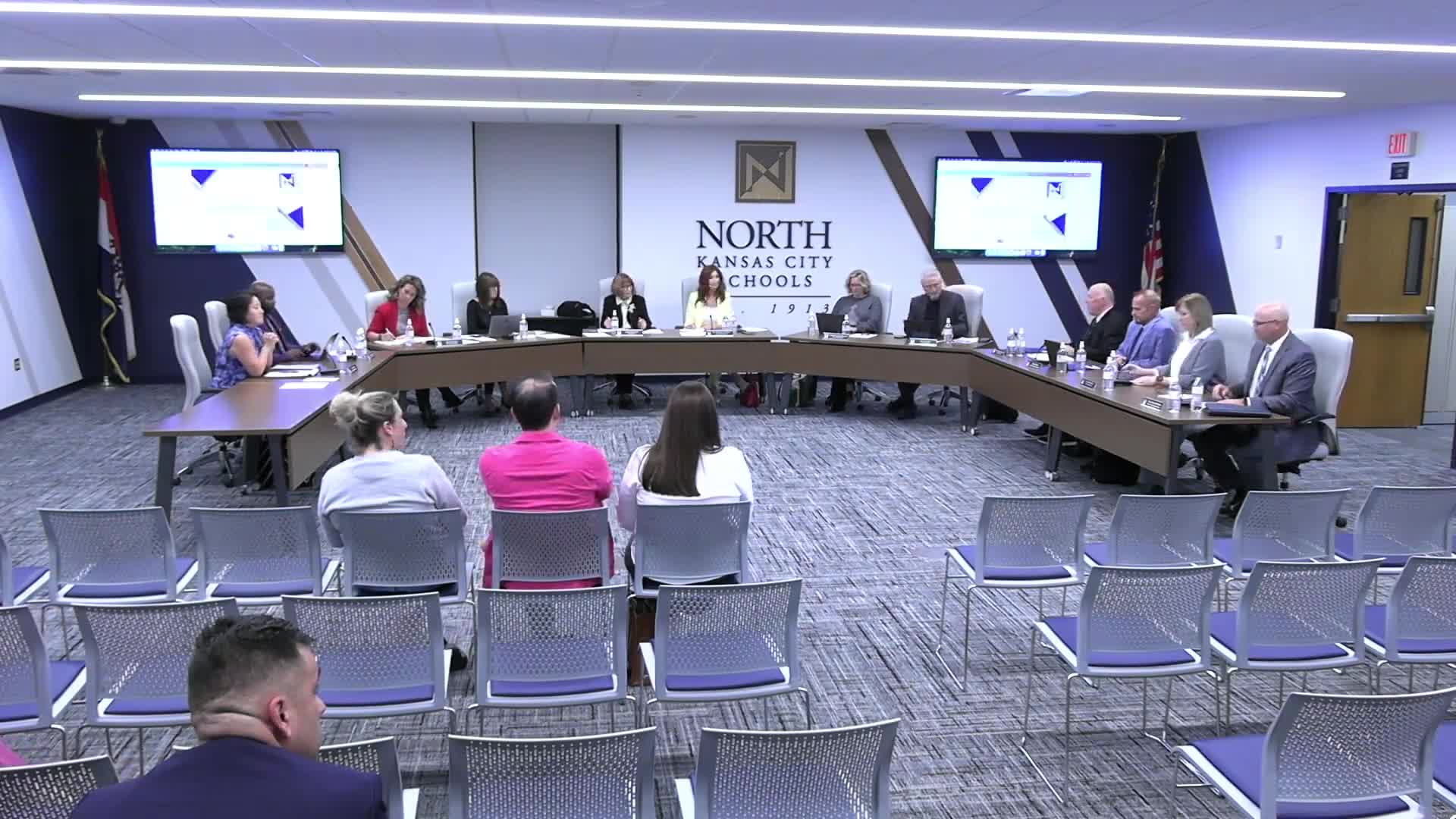North Kansas City board hears progress report on standards-based grading, sets full implementation for 2026
Get AI-powered insights, summaries, and transcripts
Subscribe
Summary
District officials and teachers described the rollout of standards-based learning and grading, including proficiency scales, pilot results from Vanguard schools, teacher supports and a community communication plan ahead of districtwide implementation in 2026.
North Kansas City School District officials outlined progress this week on a multi-year transition to standards-based learning and grading, saying Vanguard schools have piloted proficiency scales, the district is piloting a new gradebook and elementary report cards, and full district implementation is scheduled for the 2026 school year.
The presentation, led by district administrators and Vanguard teachers during the Board of Education’s Oct. 14 meeting, emphasized three guiding principles for the grading change: “clarity, accuracy, and fairness,” officials said. The district has staged professional development since 2023 and has used teacher feedback to revise proficiency scales before broader rollout.
Why it matters: Board members and staff said the change is intended to communicate more precisely what students know and can do, to give teachers a consistent framework across schools and to make grades more comparable when students move between buildings. Dr. Kronke, a district staff member leading the presentation, said the work is tied to the district’s balanced scorecard and the goal of providing clear learning targets for students and families.
Details of the rollout and classroom practice District staff described a multi-year plan that began with building teacher understanding through a district book study in 2023, followed by targeted professional development and coaching with Marzano consultants. Vanguard schools have been piloting the scales and instructional practices; non-Vanguard schools are participating in smaller-group PD and team-based work as they prepare for fall 2026 implementation.
Lindsay Priest, teaching and learning coach at Maplewood Elementary, described how proficiency scales have changed conversations in teacher teams and with students. “It just kind of provided that opportunity for us to have those conversations and really be grounded in student achievement,” Priest said, describing more consistent learning targets and clearer feedback for students.
Brandon Stevenson, a social studies teacher at Northgate Middle School, described changes to classroom conversations and grading: “Grading is based on their evidence of learning as opposed to what they have or haven't turned in,” Stevenson said, adding that frequent, short conferences with students help teachers confirm whether students have demonstrated mastery.
Staff said the district is developing proficiency scales from Missouri learning standards with teacher input and consultant support; the scales have gone through at least three iterations and will continue to be revised based on classroom use and teacher feedback. Encore/arts and elective courses have had dedicated work time to create or refine scales, staff said.
How scores translate and how secondary grades will be calculated Board members raised questions about how proficiency levels map to letter grades and when earlier low scores can be superseded by later evidence of mastery. Dr. Potts, a district staff presenter, explained that a “2” on a proficiency scale corresponds to what the district calls “developing,” and that students will have multiple opportunities to show proficiency so early low scores do not necessarily determine final course grades: “That lower performance in an early and an on an early assessment would not necessarily impact what their grade would be at the end like it used to,” he said.
At the secondary level, staff said each standard’s final score will be averaged to produce a starting point for a semester grade. Teachers will then review the body of evidence and may collect additional evidence before finalizing a single semester grade for the transcript. Officials emphasized the district will continue to report letter grades on transcripts for college and GPA purposes and that distinction points and transcript formatting will not change.
AP and advanced coursework Administrators said Advanced Placement (AP) and International Baccalaureate (IB) courses have been addressed by writing proficiency scales aligned to those course standards. Staff noted the College Board’s AP exams remain the external accountability mechanism for AP coursework and that AP teachers in the district have used standards-based approaches for years.
Communication, feedback and supports District presenters said communication with families is a priority and described planned focus groups with students and parents, ongoing PD for teachers, a feedback mechanism built into the district’s Canvas course for teacher comments on scales, and in‑the‑moment coaching by instructional coordinators. Staff said the gradebook and report‑card designs were developed with teacher input from the Vanguard pilot sites.
Lessons from pilots and Vanguard schools Presenters urged schools to practice standards‑based instruction and assessment now rather than waiting until implementation. Teachers who previously used standards-based practices reported smoother transitions; staff encouraged ongoing PLC work, student involvement in tracking learning (including “student evidence” binders), and repeated teacher practice and feedback cycles.
Votes at a glance The board approved the evening’s agenda at the meeting start; the transcript records the board saying “Aye” and “Opposed? No. The agenda has been approved.” (The motion’s mover, seconder and individual vote names were not specified in the transcript.)
Next steps Staff said the district will continue to collect teacher, student and parent feedback through the school year, refine proficiency scales, and expand piloting of the gradebook and elementary report card in advance of full implementation for the 2026 school year.
